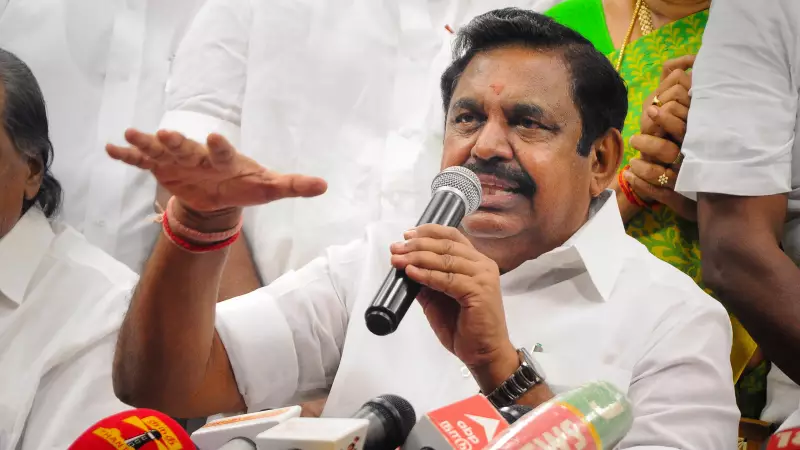
In a blistering political assault that has set Tamil Nadu's political circles abuzz, AIADMK chief Edappadi K Palaniswami has launched a scathing critique against Chief Minister MK Stalin, branding him a "full-time movie critic" who has allegedly neglected his administrative duties.
The Political Showdown Intensifies
During a recent public address that drew significant attention, Palaniswami didn't mince words as he accused the DMK leader of being more preoccupied with reviewing films than addressing the pressing issues facing Tamil Nadu. The AIADMK supremo suggested that Stalin's frequent commentary on cinema has come at the expense of governance.
Governance vs Entertainment: The Core Argument
Palaniswami's criticism centers around what he perceives as misplaced priorities within the current administration. "While the state grapples with serious challenges," the former chief minister implied, "the current CM seems more invested in the world of entertainment than in solving people's problems."
The remarks highlight an ongoing political strategy where opposition parties are attempting to frame Stalin's well-known interest in Tamil cinema as a liability rather than a relatable quality.
Background of Cinematic Connections
This isn't the first time Stalin's association with the film industry has become political fodder. The Chief Minister, known for his occasional reviews and comments on Tamil movies, has often used cinema as a medium to connect with the masses. However, opposition parties have increasingly weaponized this aspect of his public persona.
Political analysts suggest that Palaniswami's latest broadside represents a calculated move to undermine Stalin's credibility as a serious administrator while appealing to voters who might view his cinematic engagements as frivolous.
Broader Political Implications
The exchange signals escalating tensions between Tamil Nadu's two major political powers as both parties position themselves for upcoming electoral battles. Palaniswami's direct attack indicates a more aggressive opposition strategy aimed at keeping the ruling party on the defensive.
As the war of words continues to dominate political discourse in the state, observers are watching closely to see how this narrative develops and whether it resonates with the electorate. The coming weeks are likely to see further exchanges as both parties refine their messaging ahead of crucial political contests.





